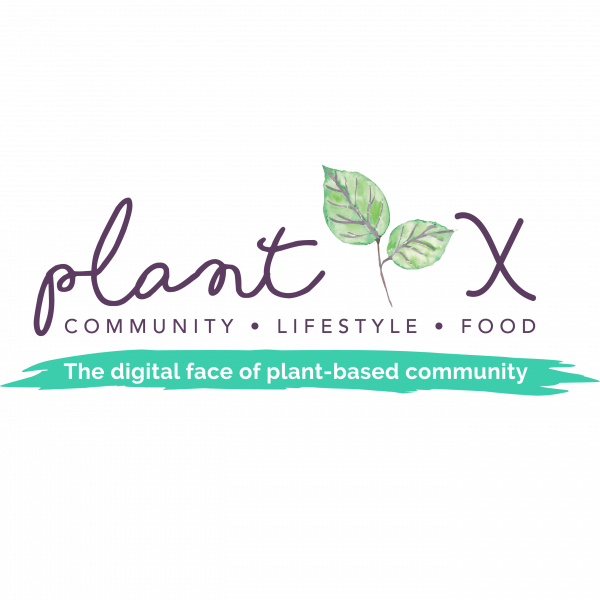
The paradigm shifting, parabolic growth of plant based foods and a plant based life is unstoppable. PlantX Life (VEGA:CSE) (PLTXF:OTCQB) Is The One Stop Shop For Everything Plant Based + The Digital Face of The Plant -Based Community with the following:
- Plant Based Meal Delivery (20 meals)
- Plant Based Snack Products
- Plant Based Pet foods
- Plant Based Restaurant Locator
- Plant Based Recipes
- Plant Based Essentials …. Like Chocolate (Essential? You Bet)
- And …… Plant Based …. PLANTS (It’s A BIG Business!)
More than just talk, VEGA is already in full swing and growing FAST
- Already Operating In Canada
- US Online Operations Kick Off With $USD 25M MIN of PlantX products YEAR 1
- 6% Royalty Fee to PlantX on gross USA revenues
- £8 million Acquisition of Bloombox In The UK, generating millions in revenue
- Closed $11.5M Non-Brokered Private Placement
- Monthly gross revenue of over $1M for December 2020
- · ….. and just announced its Application To List On NASDAQ
Hub On AGORACOM / Corporate Profile
2021 Will Be The Year That Plant-Based Foods Will Finally Go Mainstream

- According to a recent report by consultancy firm, AT Kearney, the global vegan food market was valued at $14.2 billion in 2018, and is expected to reach $31.4 billion by 2026.
- And, as interest and sales grow, customers are becoming more discerning, health conscious, and are scrutinizing the calories and nutritional value of meat-free products as closely as they would when buying meat.
Veganuary 2021 comes at the end of a spectacular twelve months for veganism in the US. Vegan food sections have become fixtures of every grocery store – something that was unthinkable, even two years ago. Prior to the pandemic, the US was already one of the fastest growing vegan markets in the world: that trend has only accelerated since.
A survey, conducted earlier this year by Gallup, found that 77% of Americans had reduced their meat consumption in the past twelve months. The subsequent outbreak and change wrought by Covid-19 has intensified interest still further – to the point that almost six in ten Americans now report that they are ‘transitioning to a more flexitarian, or semi-vegetarian, diet”.
The theories on why Covid is accelerating demand for plant-based options are varied; we believe it’s because lockdown has given us all time to reflect on our food choices and their socio environmental impact, has brought fitness and well-being into sharp focus, and has given more time for cooking at home – where we can more easily control what we eat. The health and environmental implications of eating meat were already a concern for many. The pandemic has reminded us that viruses can leap across species barriers – bringing home the long-term risks of meat.
For retailers and vegan food suppliers, it’s becoming a crowded but profitable market. According to a recent report by consultancy firm, AT Kearney, the global vegan food market was valued at $14.2 billion in 2018, and is expected to reach $31.4 billion by 2026. And, as interest and sales grow, customers are becoming more discerning, health conscious, and are scrutinizing the calories and nutritional value of meat-free products as closely as they would when buying meat.
For plant-based meats, customers expect products to closely replicate the taste and texture of conventional meat (a common complaint amongst those who have tried to switch). In 2021, Heura will be introducing the first plant-based meat burger made with extra virgin olive oil which has the fatty texture of meat but 84% less saturated fat than the first generation of plant-based products, achieved by creating a ‘fat analogue’ which resembles and preserves the juiciness of meat while reducing the amount of fat from oils.
There is a growing bounty of options for consumers on the shelves. As has happened with plant-based milk, we will also see more diversity on plant-based meat sources to replace those with animal protein. Today, plant-based products are predominantly soy-based and pea-based, but the next generation could be made from lentils, chickpeas and sunflower seeds.
Where we buy this food will change, too. In the same way that Pret a Manger introduced veggie-only sandwich shops, I predict that the fast food giants will open dedicated ‘meat alternative’ restaurants.
Grocery stores will change, as well. They won’t have a separate vegan aisle – they’ll put plant-based products alongside meat and perhaps start multi-buy offers (currently rarer on plant-based food), which will make them more of an attractive option for customers to try.
So, as we move in a new, and hopefully less turbulent year, it’s clear that plant-based products are becoming mainstream. The recent announcement by McDonald’s, the world’s biggest burger chain, that it is to launch its first plant-based burger, exemplifies this. When we look back at 2020, it may seem like a crucial turning point: the moment when plant-based products went from “alternative” to “successor” foods.
Source: https://www.fb101.com/2021/01/2021-will-be-the-year-that-plant-based-foods-will-finally-go-mainstream/
Tags: Bloombox Club Limited, clean eats, CSE, Liv Marketplace LLC, nasdaq, Odacité, pet food